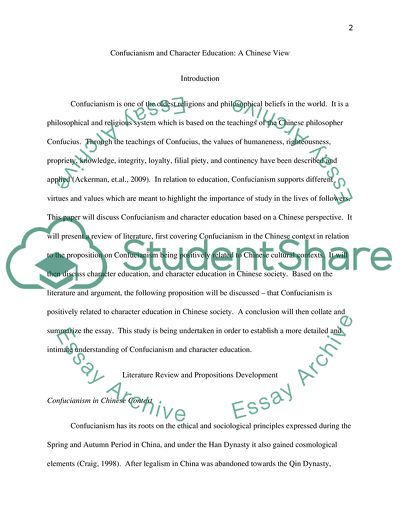Cite this document
(Confucianism and Character Education: A Chinese View Coursework Example | Topics and Well Written Essays - 3750 words, n.d.)
Confucianism and Character Education: A Chinese View Coursework Example | Topics and Well Written Essays - 3750 words. https://studentshare.org/philosophy/1796576-confucianism-and-character-education-a-chinese-view
Confucianism and Character Education: A Chinese View Coursework Example | Topics and Well Written Essays - 3750 words. https://studentshare.org/philosophy/1796576-confucianism-and-character-education-a-chinese-view
(Confucianism and Character Education: A Chinese View Coursework Example | Topics and Well Written Essays - 3750 Words)
Confucianism and Character Education: A Chinese View Coursework Example | Topics and Well Written Essays - 3750 Words. https://studentshare.org/philosophy/1796576-confucianism-and-character-education-a-chinese-view.
Confucianism and Character Education: A Chinese View Coursework Example | Topics and Well Written Essays - 3750 Words. https://studentshare.org/philosophy/1796576-confucianism-and-character-education-a-chinese-view.
“Confucianism and Character Education: A Chinese View Coursework Example | Topics and Well Written Essays - 3750 Words”. https://studentshare.org/philosophy/1796576-confucianism-and-character-education-a-chinese-view.


